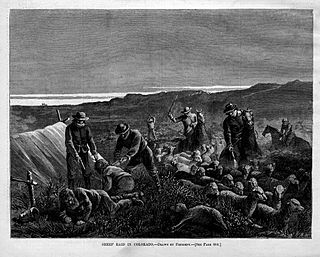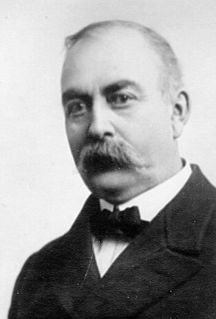 W
WThe Sheep Wars, or the Sheep and Cattle Wars, were a series of armed conflicts in the Western United States which were fought between sheepmen and cattlemen over grazing rights. Sheep wars occurred in many western states though they were most common in Texas, Arizona and the border region of Wyoming and Colorado. Generally, the cattlemen saw the sheepherders as invaders, who destroyed the public grazing lands, which they had to share on a first-come, first-served basis. Between 1870 and 1920, approximately 120 engagements occurred in eight different states or territories. At least 54 men were killed and some 50,000 to over 100,000 sheep were slaughtered.
 W
WAztec Land and Cattle Company, Limited ("Aztec") is a land company with a historic presence in Arizona. It was formed in 1884 and incorporated in early 1885 as a cattle ranching operation that purchased 1,000,000 acres in northern Arizona from the Atlantic & Pacific Railroad. It then imported approximately 32,000 head of cattle from Texas and commenced ranching operations in Arizona. Because Aztec's brand was the Hashknife, a saddler's knife used on early day ranches, the company was known more famously as The Hashknife Outfit. The company has been in continuous existence since 1884.
 W
WWilliam Edgar Borah was an outspoken Republican United States Senator, one of the best-known figures in Idaho's history. A progressive who served from 1907 until his death in 1940, Borah is often considered an isolationist, because he led the Irreconcilables, senators who would not accept the Treaty of Versailles, Senate ratification of which would have made the U.S. part of the League of Nations.
 W
WJackson Lee "Diamondfield Jack" Davis was pardoned for the 1896 Deep Creek Murders in Idaho and would later strike it rich in Nevada, where he established several mining towns, one named after his nickname "Diamondfield".
 W
WEmpire Ranch is a working cattle ranch in southeastern Pima County, Arizona, that was placed on the National Register of Historic Places in 1976. In its heyday, Empire Ranch was one of the largest in Arizona, with a range spanning over 180 square miles (470 km2), and its owner, Walter L. Vail, was an important figure in the establishment of southern Arizona's cattle industry.
 W
WJames Henry Hawley was an American attorney and politician from Idaho. He was state's ninth Governor from 1911 to 1913, and the mayor of Boise from 1903 to 1905. He also acted as prosecutor or defense attorney for a substantial number of criminal cases. Outside of criminal law, he specialized in irrigation and mining cases.
 W
WThe Pleasant Valley War, sometimes called the Tonto Basin Feud, or Tonto Basin War, or Tewksbury-Graham Feud, was a range war fought in Pleasant Valley, Arizona in the years 1882–1892. The conflict involved two feuding families, the Grahams and the Tewksburys. The Grahams were ranchers, while the Tewksburys, who were part Native American, started their operations as cattle ranchers before branching out to sheep.
 W
WThe Sheepshooters' War was an armed conflict fought in central and eastern Oregon. Like other range wars in the Old West, the war pitted cattlemen against sheepherders. Because the cattlemen were unwilling to share the open range with the sheepherders, due to concerns about overgrazing, they formed paramilitary organizations with the goal of eliminating the flocks of sheep and anyone who attempted to stop them. Between 1895 and 1906, the Sheepshooters, as they were called, slaughtered at least 25,000 sheep. A few men were also killed during gunfights or related incidents.
 W
WJohn Sparks was an American politician. He was the tenth Governor of Nevada, and was nicknamed Honest John. Like his predecessor, Reinhold Sadler, Sparks was a cattleman and his rise to political power was evidence of the decline of the mining industry and the rise of the ranching industry in Nevada. He was a member of the Silver – Democratic Party. In 1958, he was inducted into the Hall of Great Westerners of the National Cowboy & Western Heritage Museum.
 W
WThe Spring Creek raid, also known as the Tensleep Murders or the Tensleep Raid, occurred in 1909 and was the last serious conflict during the Sheep Wars in Wyoming, as well as the deadliest sheep raid in the state's history. On the night of April 2, the sheepherder Joe Allemand and four of his associates were encamped along Spring Creek, near the town of Ten Sleep, when a group of seven masked cattlemen attacked them. It remains uncertain as to whether or not an exchange of gunfire took place between the two parties, but evidence suggests that Allemand and two of his men were executed while the remaining two escaped unharmed. Two sheep wagons were also destroyed by fire and about two dozen head of sheep were shot to death. Seven men were arrested for the crime, two of whom turned state's evidence and were acquitted. The rest were found guilty and sent to prison for sentences ranging from three years to life in prison. The conviction of the Tensleep murderers effectively put an end to the killings on the open range and exemplified the arrival of law and order in a region that still retained its rugged frontier environment after the end of the 19th century. Although there continued to be sheep raids in Wyoming into the 1910s, there were no more deaths.